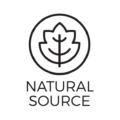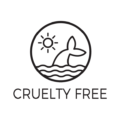- Getting Started
-
by k.mammasis
Algae is the only primary source of omega3s

All fish, whether wild or farmed, receive their omega-3 content from consuming algae, which is a key source of omega-3 lipids. People eat it and this is how they receive EPA and DHA, two of the most important omega-3 fatty acids. EPA and DHA are important for maintaining cardiovascular health, brain function, and overall well-being. By consuming algae directly, you can skip the “middleman” and get a direct and sustainable source of omega-3s.
“EPA and DHA in fish come from algae. Smaller fish eat it, and it travels up the food chain from there. So why don’t we choose to go directly to the purest source of omega-3s originating from algae instead of the fish oil derivatives? More people are beginning to understand this.” – Dr. Konstantinos Mammasis – Of Dreams and Knowledge
Our innovative formula: High Phenolic Olive + Vegan Algae Omega 3 Oil (EPA DHA ALA) is designed for promoting heart and brain health. Formulated to combine plant-based healthy fatty acids synergistically, it offers you nature’s most formidable spectrum of vegan Omega 3 in eicosapentaenoic acid (EPA), docosahexaenoic acid (DHA) and alpha-linolenic acid (ALA). It also contains Bioactive Polyphenols (hydroxytyrosol, tyrosol, oleaocanthal, oleacin and more), Omega 6 and Omega 9 in a healthy food combination created to meet your full daily nutritional needs.
Algae cultivation is performed in an environmentally responsible fermentation – indoor conditions. No exposure to potential contaminants such as pesticides and other chemicals in the open air, water, and ground. Olive tree cultivation is free of pesticides, promotes biodiversity and aims to increase the phenolic compounds in the final medical olive oil. It is always protected in a dark glass bottle to prevent photo-oxidation and migration of microplastics until it reaches your hands.
Algae is not just for Vegans
So if you’re looking for a plant-based source, algae high in omega-3 can be a great option. But even if you are not vegan, choosing to go with algae instead of fish-derived omega-3s is a much better option in terms of effectiveness and sustainability. Not all types of algae are high in omega-3s, so it’s important to choose a species that is specifically cultivated for this purpose, such as certain species of microalgae or seaweed.














